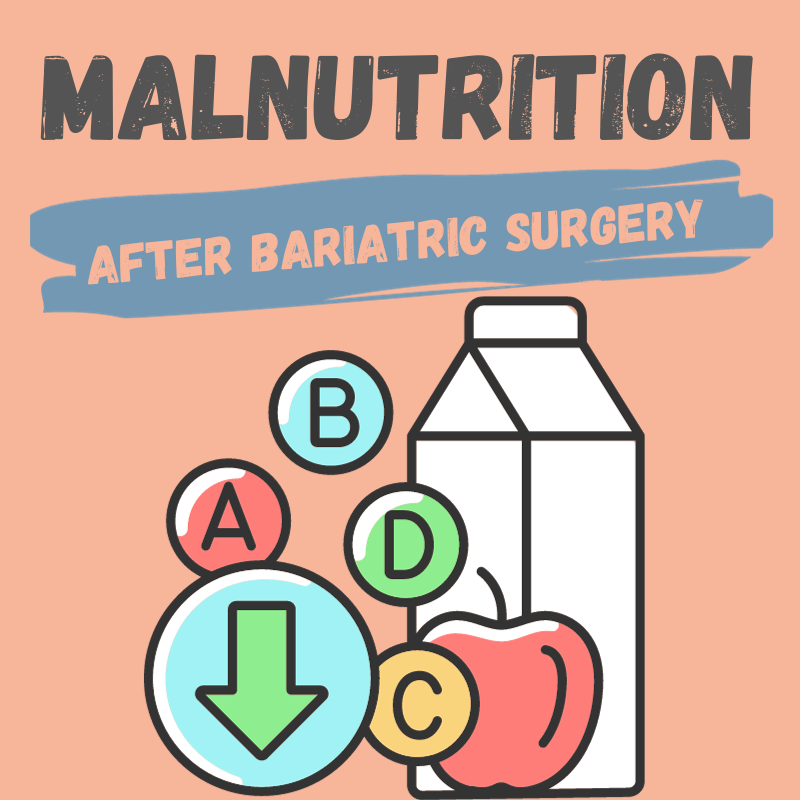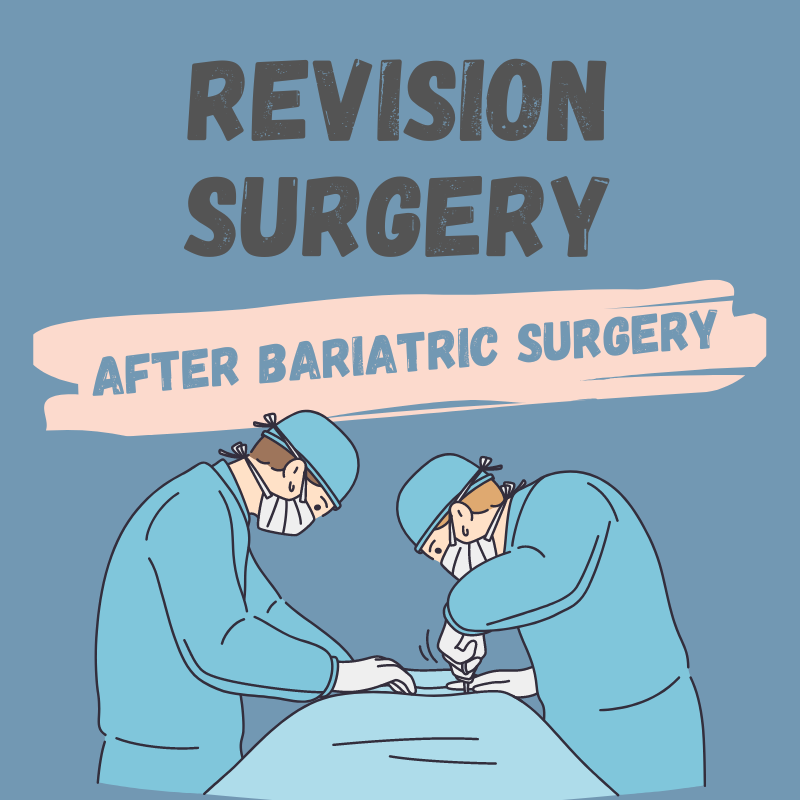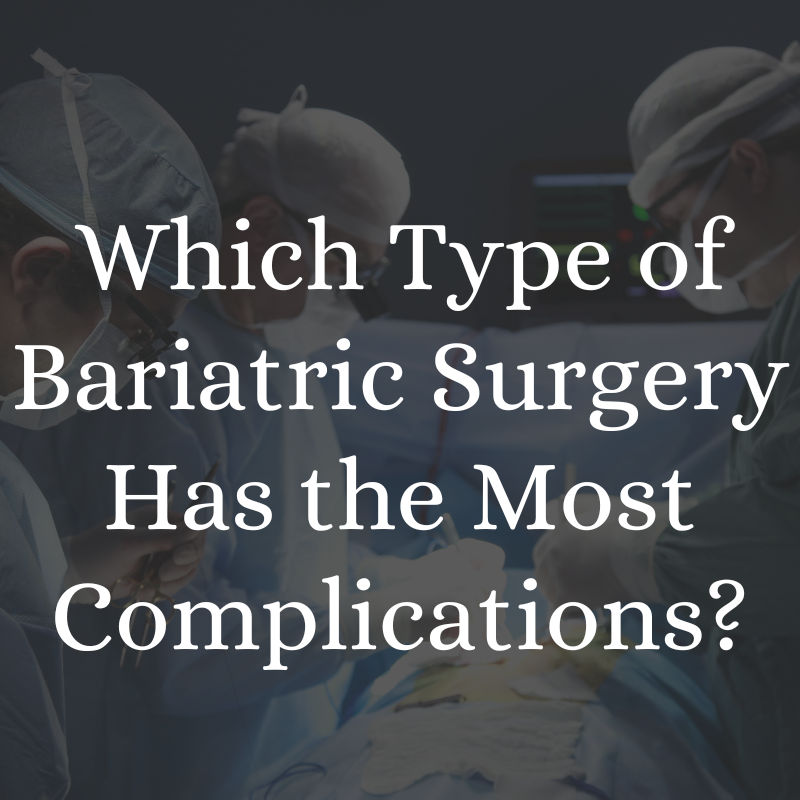Your cart is empty
Revision Surgeries after Bariatric Surgery
Bariatric Revision Surgery
Key Takeaways

| Why is Bariatric Revision Surgery Needed? | Revision surgery may be required due to post-operative complications, inadequate weight loss, significant weight regain, or the recurrence of obesity-related health problems. |
| Types of Bariatric Revision Surgeries | Revision surgeries can be categorized into conversion surgeries, which change the type of bariatric surgery, and corrective surgeries, which fix complications from the original surgery. |
| Risks and Challenges of Bariatric Revision Surgery | Bariatric revision surgeries are more complex and carry higher risks than initial bariatric surgeries. Factors such as the patient's overall health, the type of initial bariatric surgery, and the reason for the revision can influence the success of the procedure. |
| The Process of Bariatric Revision Surgery | The process involves a comprehensive pre-operative evaluation, the surgery itself, and a detailed post-operative care plan, including dietary modifications and regular exercise. |
| Outcomes and Expectations from Bariatric Revision Surgery | Patients can expect renewed weight loss, improvement or resolution of obesity-related health conditions, and enhanced quality of life. However, outcomes can vary after Bariatric revision surgery, and success is often dependent on adherence to lifestyle changes. |
Why is Bariatric Revision Surgery Needed?
Bariatric surgery, while transformative, is not a guaranteed fix. It's a complex procedure that, like any other, carries its own set of risks and potential complications.
The need for a bariatric revision surgery can arise from a variety of circumstances, each unique to the patient's journey. Post-operative complications such as band slippage, erosion, or the development of ulcers can necessitate a revision surgery to alleviate symptoms and improve the patient's quality of life.
On the other hand, inadequate weight loss or significant weight regain after the initial bariatric procedure can also lead to a second surgery. This is often the case when dietary guidelines and lifestyle changes are not sustained. Additionally, the recurrence or persistence of obesity-related health problems, despite the initial surgery, might warrant a revision. In all these scenarios, the ultimate aim is to improve the patient's health and quality of life.
Types of Revision Surgeries

Revision surgeries following bariatric procedures are as varied as the reasons behind them. Broadly speaking, they fall into two categories: conversion surgeries and corrective surgeries, each addressing different needs and complications.
Conversion surgeries, as the name suggests, involve converting one type of bariatric surgery to another. This is often considered when the initial procedure doesn't yield the desired results or when it leads to complications that might be better managed by a different type of surgery. For instance, a patient who initially underwent adjustable gastric banding but experienced band slippage or insufficient weight loss might be recommended for a conversion to a gastric bypass or sleeve gastrectomy. These surgeries have different mechanisms of action and might offer better outcomes for certain patients.
On the other hand, corrective surgeries are aimed at rectifying complications or issues arising from the original bariatric procedure. These could include mechanical problems like a leak in the stomach or intestine, a stricture (narrowing of the stomach or intestine), or an ulcer that doesn't respond to medical treatment. Corrective surgeries could also address issues like severe dumping syndrome, a condition where food moves too quickly from the stomach to the small intestine, causing unpleasant symptoms like nausea, vomiting, and diarrhea.
Risks and Challenges of Revision Surgery
Bariatric revision surgeries, while offering a potential solution to complications or inadequate results from initial bariatric procedures, come with their own set of risks and challenges. These surgeries are typically more complex and carry a higher risk of complications, making them a decision that must be approached with careful consideration.
One of the primary challenges of bariatric revision surgery is its inherent complexity. The surgeon is not starting with a clean slate but is instead working within the altered anatomy from the initial bariatric surgery. This can make the procedure technically more demanding and increase the risk of complications such as leaks, infections, or bleeding.
The type of initial bariatric surgery also plays a role in the complexity and risk of revision surgery. Some procedures are more difficult to revise than others due to their impact on the anatomy of the digestive system. For example, revising a gastric bypass can be more complex than revising an adjustable gastric band.
Finally, the reason for the revision can influence the success of the procedure. For instance, revision surgeries performed to correct mechanical complications such as a slipped band or a leak may have a higher success rate compared to surgeries performed for weight regain, which often involves more complex issues related to behavior and lifestyle.
The Process of Bariatric Revision Surgery

The journey towards a revision surgery is a comprehensive process that starts with a meticulous pre-operative evaluation. This involves a thorough review of the patient's medical history, outcomes from the initial surgery, current health status, and the specific issues prompting the revision. Diagnostic tests are conducted to plan the best surgical approach, and discussions about the potential risks and benefits of the revision surgery are held to ensure informed decision-making.
The pre-operative evaluation is a crucial first step in the process. This comprehensive assessment involves a detailed review of the patient's medical history, the outcomes from the initial bariatric surgery, current health status, and the specific issues necessitating the revision. Diagnostic tests, such as endoscopy, imaging studies, and nutritional evaluation, may be conducted to gain a thorough understanding of the patient's condition and to plan the best surgical approach. This stage also involves discussions about the potential risks and benefits of the revision surgery, ensuring the patient can make an informed decision.
The surgery itself can vary greatly in complexity, depending on the type of revision needed. Some procedures may be minimally invasive, using laparoscopic techniques, while others may require open surgery.
Post-operative care is a vital component of the bariatric revision surgery process. This phase involves managing pain and monitoring for any potential complication, and adhering to a specific diet of bariatric food designed to promote healing and weight management.
Outcomes and Expectations from Revision Surgery

One of the primary outcomes patients can expect from revision surgery is renewed weight loss. For those who have struggled with inadequate weight loss or significant weight regain after the initial bariatric surgery, a revision surgery can provide a second chance. It can help restart the weight loss process, aiding patients in achieving their weight management goals.
In addition to weight loss, revision surgery can also lead to the improvement or resolution of obesity-related health conditions. Conditions such as type 2 diabetes, hypertension, sleep apnea, and others that might have persisted or returned after the initial surgery can often be improved or even resolved with a successful revision surgery. This can lead to a significant enhancement in the patient's overall health status and quality of life.
Beyond the physical outcomes, bariatric revision surgery can also have positive psychological and emotional effects. Achieving desired weight loss goals and improving health can boost self-esteem and body image, leading to improved mental and emotional well-being.
Conclusion
It's important to remember that the outcomes of bariatric revision surgery can vary widely from patient to patient. Success is not guaranteed and is often contingent on the patient's adherence to lifestyle changes, including diet, exercise, and other recommendations from their doctors. It's also important to maintain realistic expectations and understand that revision surgery, like the initial bariatric surgery, is a tool to aid in weight loss and health improvement, not a cure.
Bariatric Guides & Information
More Info
Customer Favorites
- Choosing a selection results in a full page refresh.




























